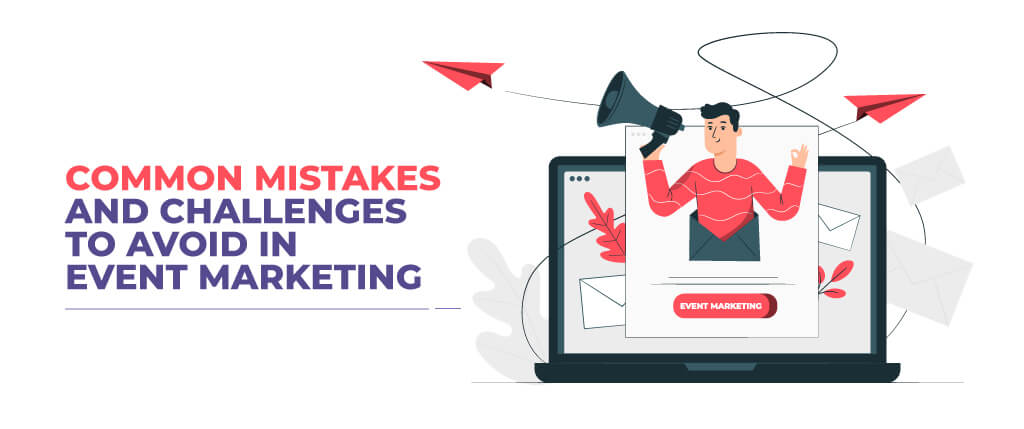Let’s just get straight to the point.
Are you someone who has always thought about conducting an event, but couldn’t figure out where to start?
Or
Are you simply having the pre-event jitters?
Don’t worry!
Here’s our complete guide to help you step by step for planning an event from start to finish.
Get your pens and papers ready, this one is jam-packed with instructions, tips, and software recommendations to keep your event planning organized and on track.
First Things First, Develop a goal!
The foundation of your event is its goal. This will give you a direction for planning the whole event.
To get started, you have to know where you’re going. The goal is a must to have a great start and an even greater end result to the event.
To simplify the process, split the objectives into categories:
- What is your ultimate goal for this event?
It can be anything related to: raise money for a cause, launch a product, increase brand awareness, promote a brand or a combination of these smaller goals. This will help you figure out what kind of event best suits your needs. Is it a product launch, a seminar or just a webinar? - How many attendees do you want for the event?
For your first event it’s even more important to nail down a target attendee number so you can measure success.
- How much revenue do you hope to collect from this event?
Establish your budget, and layout what you need to make in order to recoup expenses. Yes, revenue is a major concern but it’s your first event, so try to focus more on elements which can be added to your event to satisfy the attendees to make them wait and get excited for the next one. This might increase your audience in the next event Then you can look out for revenue generation.
Who’s your A-Team?
Once you build your event goal, it’s time to assemble the team that’ll help your achieve your goal.
However, hiring team members isn’t as simple as asking a few volunteers to hang banners up and sign in guests.

The roles and responsibilities are to be assigned as per the individual skills and interests.
After you put your team together, establish a communication channel so that everyone can function efficiently and share required information. You can use chat software such as Whatsapp or Slack to run your event communications smoothly.
What’s your budget?
A definite budget is crucial for your event’s success. With a properly laid out plan, you can figure out where to spend your money to make your guests enjoy your event to the fullest.

Because No money, No event!
The size of the budget helps you determine the event scope and scale you can afford.
Here’s a list of key expenses to include in your budget:
- Venue (rooms, security deposit, parking)
- A/V (projectors, internet/Wi-Fi, speakers, microphones, cameras)
- Catering (bartenders, servers, food, beverages, table settings)
- Marketing (social media marketing, print materials and design work, registration management)
- Entertainment( speaker fees, associated housing and transportation costs)
- Miscellaneous (your catch-all category; include venue decor, seating, additional event staff, taxes, and fees)
When and Where?
You’ve established your budget, so it’s time to go on a venue hunt and if your event involves a speaker, it’s time you look for them too (linkedIn is the best platform to find out thought leaders ideal for your event).
Before you start the search, make a list of key practicalities and refer to your list when you look for a venue.
Here are a few suggestions to get your started:
- What is your expected count of attendees?
- What kind of parking will you need?
- Will you need your own A/V equipment, or will the venue provide it?
- Does the venue have adequate cell reception throughout, or will you need to provide a Wi-Fi connection?
- How much floor space do you need?
- Do you need an open space, or segmented areas/rooms? (If the latter, how many rooms do you need?)
- How far in advance does this venue book? Is it available in the window you’re looking for?
- What are the deposit, cancellation, and refund policies?
Do you wanna partner?
To stretch your budget and increase your reach, identify corporate partners and community organisations that could provide you with assistance to make progressive steps in your event plan.

Think of each solution imaginable: from the venue rental to volunteer help.
For many event organizers, potential sponsors are hard to find, and even harder to convert. But it doesn’t have to be so difficult. After all, you have something they want: the attention of their target audience.
Event sponsors want to reach people who are likely to become loyal customers. To do that, you need to partner with a product or service your attendees will want.
Follow these steps to choose your sponsor:
- Think about the needs of your attendees, list companies who meet those needs, and you’ll end up with a broad range of potential sponsors.
- Draft an elevator pitch and write two to three lines about the type of your event, value to a potential sponsor, and a request for a short meeting.
- Connect with sponsors by attending events, interact on social media, reach out on LinkedIn, or sending emails.
- Once a sponsor is interested, it’s time to craft a sponsorship package that reflects both the sponsor and your event’s brand.
- When a proposal has been accepted, make a checklist so that you keep the promises that have been made.
- Keep your sponsors informed and involved leading up to the event.
Time to market your event
You have your goals, budget, team and sponsors ready. Now, it’s time to start the fun stuff.
Let’s brand & market your event!
Decide the name and theme of your event and make brochures or pamphlets to distribute it around. Listing Sites and Facebook are two of the most crucial platforms to get in the audience.

EventBrite, Townscript, BookMyShow are some of the platforms where you can list your event. And as for social media, don’t forget to create a facebook event and run social media ads to reach a wider audience.
Whatsapp apart from cold calls and mails, is also a great way to market your event to the existing database and stay in constant touch with your probable attendees.
Join and post in groups on Facebook relevant to your event type.
An essential to create the right buzz around your event is an effective social media strategy. Use visuals to make your posts as appealing as possible and post at least twice a day on your social media to maximize engagement.
Use relevant hashtags and include a countdown to increase hype for your event.
Determine your needs
Technology is necessary to facilitate a successful event.
Once potential attendees start seeing event advertisements and notices, you need a system in place to handle their signups. Make sure your website has a signup field for attendee registration, and a data collection system to store and manage all those registrations.
If you want your audience to hear what’s going on and remain engaged during your event, you need some equipment like microphones, projectors, speakers, lighting. Build a short list of caterers to contact and negotiate the best price for your event.
Event week is here, and it’s time to set everything up, give it one last glance, and host the darn thing.
What to do before the event:
- Call participating vendors to double check on equipment, catering, and sponsors
- Check in with the venue owners/managers to confirm the date and time everything will be ready to begin setup
- Test all of your equipment as it arrives at the venue
- Set up your ticketing system for guest check-in
- Create a final schedule handout
Once the event starts, manage your guests, their needs, and your staff, but not on a granular level.
Focus on the experience and facilitating a smooth operation.
Post-event: What to do
After the event is over, don’t forget about everything that just happened as you collapse in exhaustion.
Make sure you evaluate the event’s performance.

Your event management software should’ve recorded all attendees, your revenue, and social engagement numbers.
Take a deep dive into this data, compare results to your goals, and log results for future reference.
Toast to your successes, and view any struggles as challenges to overcome next time around.
Our guide is done and here you are ready to host your first ever event!






